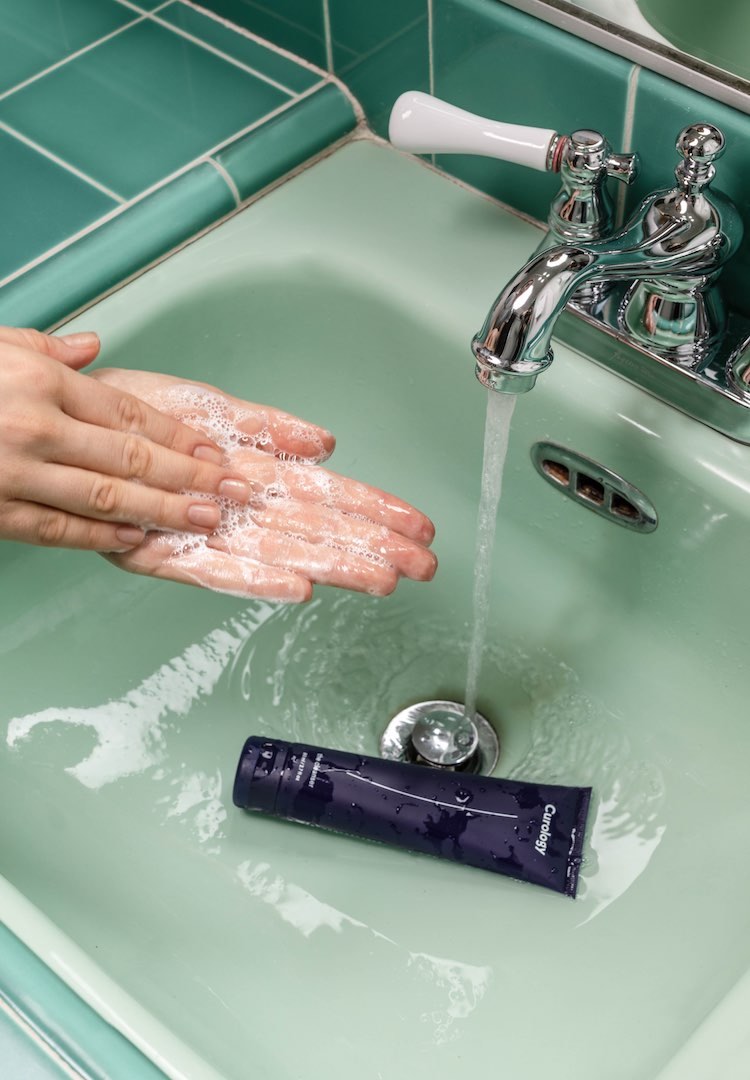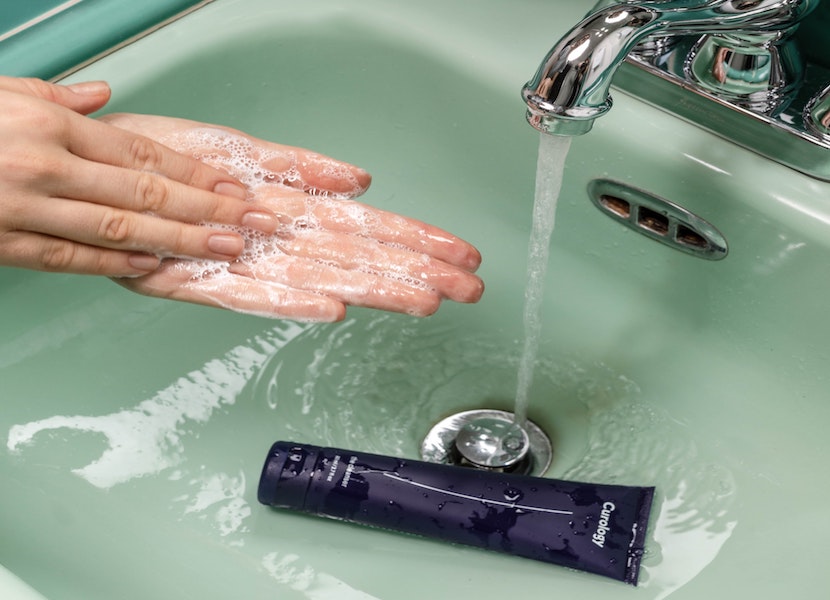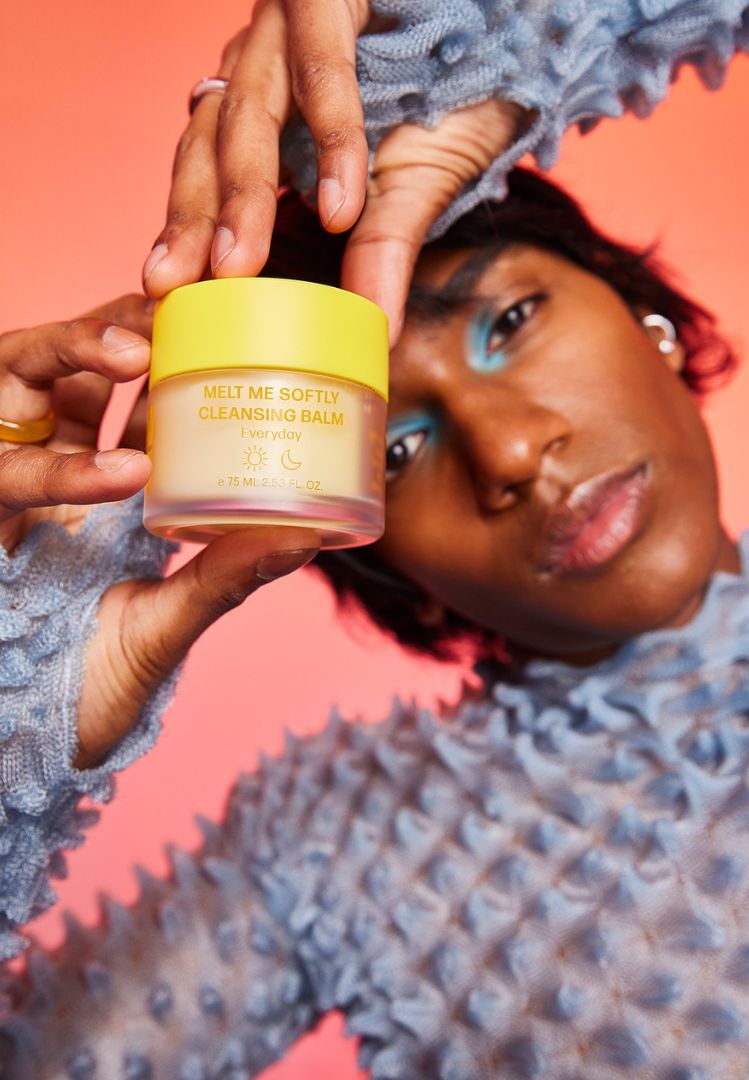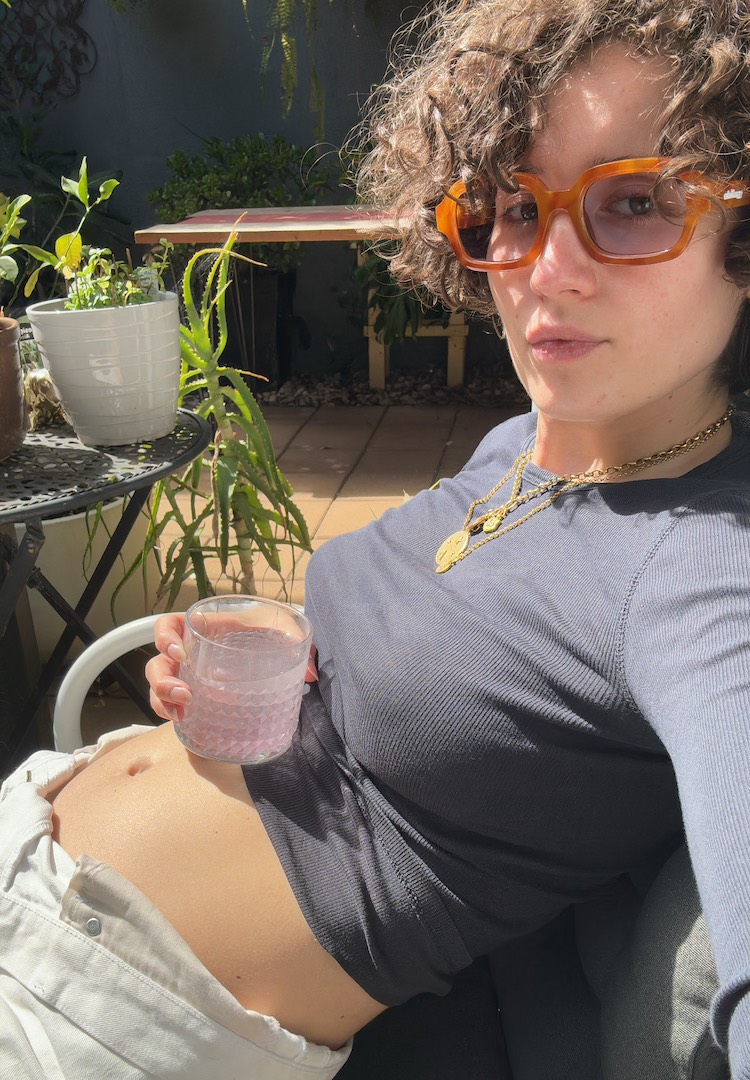What is psoriasis and can you treat it affordably?
WORDS BY LEEANN BUSHNAQ
Because your skin shouldn’t set you back.
At eight years old, I was faced with the daunting experience of moving to a new school. Knowing nobody in my new surroundings and being a timid girl that couldn’t put more than two words together without completely freaking out meant my stress was, in hindsight, probably at an all-time high.
Not only did this foreign territory invite some slight mental panic, but it presented me with abnormal – and far too noticeable red – scaly lesions on almost every centimetre of my tiny body.
Looking for more skincare recommendations? Head over to our Beauty section.
After some tests and investigations by doctors and dermatologists, what my parents thought was a rare second bout of chickenpox actually turned out to be psoriasis. Psoriasis is a chronic and inherited inflammatory skin disease.
Common triggers of psoriasis are stress and sickness. Inflammation is rooted deeply in the skin, making skin cells turn over more quickly than they should, which builds up into flaky scales on the body.
It’s been over a decade of enduring itchy skin and red, irritated scales from head to toe. I’ve been in and out of expensive therapies and treatments, and my lack of patience (and a desire to save some dollars) has made me go to extremes I would not recommend to anyone. A life lived drinking a cup of warm apple cider vinegar each morning, followed by lying under burning hot sun to keep flareups at bay (yes, that’s what they tell you to do online) is not an enjoyable one.
To better understand psoriasis, and learn about affordable, accessible ways of managing it without unnecessarily torturing yourself, I chatted to consultant dermatologist and Bespoke Skin Technology founder, Dr Katherine Armour.
Right off the bat, Dr Katherine tells me that whether you’re diagnosed with mild, moderate, or severe psoriasis, most people need to use creams or ointments. In more acute cases, prescription treatments and phototherapy are recommended. But what can you do at home to control your psoriasis?
Remedies that don’t require a prescription
Dr Katherine has a special interest in caring for psoriasis and believes general moisturisers tend to be neglected in treatment and should be part of your everyday routine.
“At least 90 per cent of people say that itch is a really significant symptom of their psoriasis and that is often under-recognised. Itch is often improved by making sure skin is well moisturised. A bland, nourishing and fragrance-free moisturiser, like your QV and CeraVe products are really helpful. Something that’s greasier tends to work better for psoriasis,” she explains.
If lathering yourself top to bottom in moisturiser isn’t the thing for you, rest assured, there are more options available. Gentle and safe sun exposure works wonders for psoriasis.
“Make sure it’s during the low UV index time of day, so before 11am and after 4pm. You really want to make sure you don’t burn, because if you get a sunburn, sometimes the psoriasis will then crop up where you’ve been burnt, which isn’t what you want.”
If you’re looking to pamper yourself during the treatment process (because you probably deserve it), bath oils are a relaxing and effective way of doing treatment right. With some tips from Dr Katherine, these too can be made budget-friendly.
“You can put some QV or DermaVeen bath oil with some sea salt… Some people get pool salt from Bunnings because it’s cheap, which can be quite good to put in the bath, but I would be putting it in with the DermaVeen colloidal oatmeal treatment, or with QV bath oil.
“The other bath treatment that is very widely available is pinetarsol, which is a tar-based treatment. Some people love it, but it dries the skin out, so if people want to use it, they definitely want to make sure they rinse off well and moisturise afterwards. Otherwise, they would get more itchy,” she explains.
Clothing hacks
Because this is a Fashion Journal article, I asked Dr Katherine if we can make clothing decisions that can aid in psoriasis management. To my surprise, she encouraged a few choices.
“We see something in psoriasis that people have, called the Koebner phenomenon… [this] is when a trauma to the skin will induce patches of psoriasis at that site. For instance, if you have a pair of jeans that was rubbing really badly around your waistline, it could be possible for that to trigger a bit of psoriasis.”
Her key recommendations are to wear natural fibres and comfortable, loose-fitting clothing so new spots don’t erupt.
Prescriptions that won’t cost you an arm and a leg
Sometimes, what we do at home isn’t enough. Thankfully, Dr Katherine tells me accessing medication is easier than we think. In terms of topical treatments, they’re broken down into topical steroids and calcineurin inhibitors, which are used to suppress the immune system.
She recommends the calcineurin inhibitor pimecrolimus because it “avoids the side effects that people are worried about with topical cortisones”.
“Pimecrolimus is a really good option, particularly on the face, because people do worry about using strong steroids on the face… it’s known as Elidel and is available on the Pharmaceutical Benefits Scheme (PBS), by an authority prescription. It’s quite gentle, so it would only be helpful for mild patient psoriasis.”
Another alternative to slow down excessive scaling are vitamin D3 analogues, found in another PBS subsidised medication, Enstilar. To make matters efficient, it’s a once-a-day only treatment.
For those suffering more widespread psoriasis, options such as narrowband UVB phototherapy are available. Put simply, it involves standing in a lightbox that uses a small part of the UVB spectrum that comes from sunlight.
If you’re worried about being out of pocket, Dr Katherine tells me, “whether you access it through the public dermatology system, or privately, you pay a dermatologist to get the therapy started, but the actual treatments are bulk billed”.
So, if you’re unsure how to navigate taking your problem skin seriously, these tips should get you started. Let’s farewell our psoriasis without forking out our entire savings.
To learn more about psoriasis, head here.










